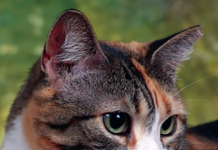Modern veterinary medicine can protect your cat from many diseases, patch him up after an accident or injury, and do much to extend and enhance his life. But its up to you to safeguard your cats health and safety at home. Prevention is much cheaper, more effective and easier on your cat – and you – than tackling problems that have gotten out of hand, says Ilona Rodan, DVM, who is board certified by the American Board of Veterinary Practitioners with a specialty in feline practice.
Give your cat his best chance for a long, healthy life with an enriched, indoors-only lifestyle in a cat-safe home. (See A Rich Environment: With Planning, Your Cat Can Engage in the Natural Behaviors of Her Ancestors, CatWatch, September 2002.) Tour your home and eliminate hazards. En-courage everyone in your family to practice door discipline (watching for cats when opening or closing any door); appliance alertness (never closing or starting any appliance without a cat check); and kitty counting (verifying location of all cats before leaving and upon returning).
Precautionary measures
Keep vaccines up to date, advises Rodan. Parasite control, having fecal checks, and de-worming are important to prevent disease in cats and in humans. I recommend doing feline leukemia virus (FeLV) and feline immunodeficiency virus (FIV) testing for all cats, and I also recommend other diagnostic tests based on a cats age. We often identify kidney or thyroid disease early, before it becomes a major problem. Were saving the cat from suffering, and saving the client money because its much more expensive to treat advanced illnesses.
Observe your cat and his routines so youll know whats normal. How much and what does he eat and drink? What shows up in the litter box, and when? Where and how long does he sleep? Is he chatty or quiet? Sociable or solitary? Any change in his input, output, behavior, sleep patterns, vocalization, or energy level is cause for concern, especially if major or sudden.
Diverting behavior problems
Behavior issues are the absolute worst situations, says Rodan. Were focusing more and more now on prevention, because so many people surrender cats (to animal shelters) because of behavior problems. Many medical conditions can cause behavioral changes, so I would definitely do a medical workup first before deciding something is behavioral. A lot of behavioral changes in older cats are related to medical conditions: dental disease, hyperthyroidism, kidney or bladder disease, high blood pressure.
To head off problem behavior, Rodan recommends training kittens to use a scratching post, accustoming them to having claws trimmed, providing one litter box per cat per floor of the house – plus one – and keeping them clean, and immediately addressing unwanted behavior. In addition to giving positive reinforcement for good behavior, use an indirect, negative response to deter inappropriate behavior – something that wont hurt the cat, but that he doesnt like and doesnt associate directly with you, she suggests. When he goes on the table, or scratches the sofa, or hangs from the plants, make an aversive noise with a whistle, party horn or pop can filled with pennies and taped shut, or use a squirt gun on the cat. Get the whole family on board to avoid sending mixed messages, Rodan emphasizes.
Seek professional advice
To prevent obesity and the health problems it can cause, serve measured amounts of a complete, balanced diet recommended by your veterinarian and appropriate to your cats age and lifestyle. Weigh him regularly. Any rapid or major weight loss or gain requires veterinary attention. A cat can have all the complications of obesity that occur in people – increased risk of diabetes, heart disease, and joint problems. Dental diets and regular tooth brushing can help save your cat from the pain of dental disease and save you money on professional cleanings. Rodan recommends checking with your veterinarian before starting your cat on weight-loss diets, supplements, or natural or alternative diets.
When in doubt about anything having to do with your cat, ask a member of your veterinary team for advice, says Rodan. Many members of veterinary staffs are well trained to answer questions on prevention of injuries, behavioral problems, poisonous plants, and much more. If they dont know the answer, theyll get it for you from your veterinarian.



